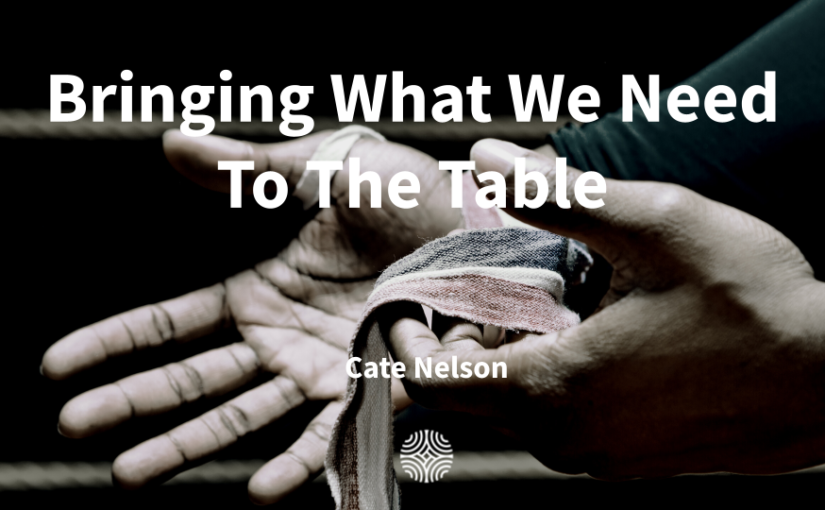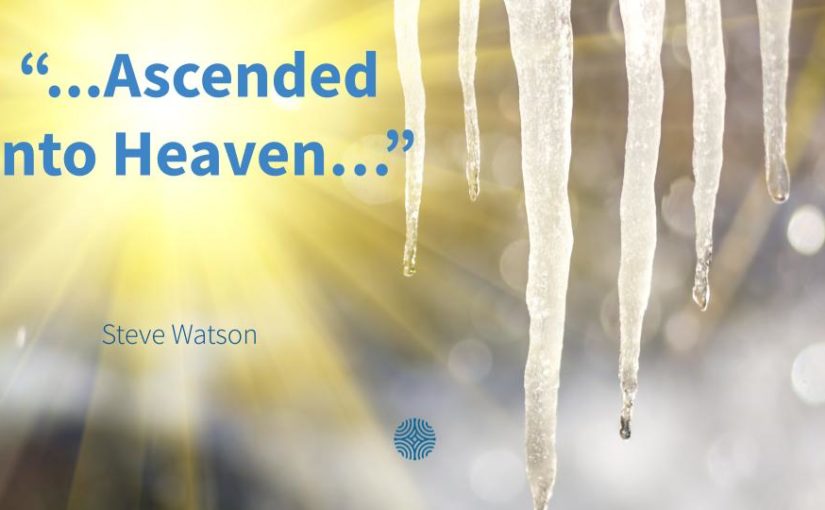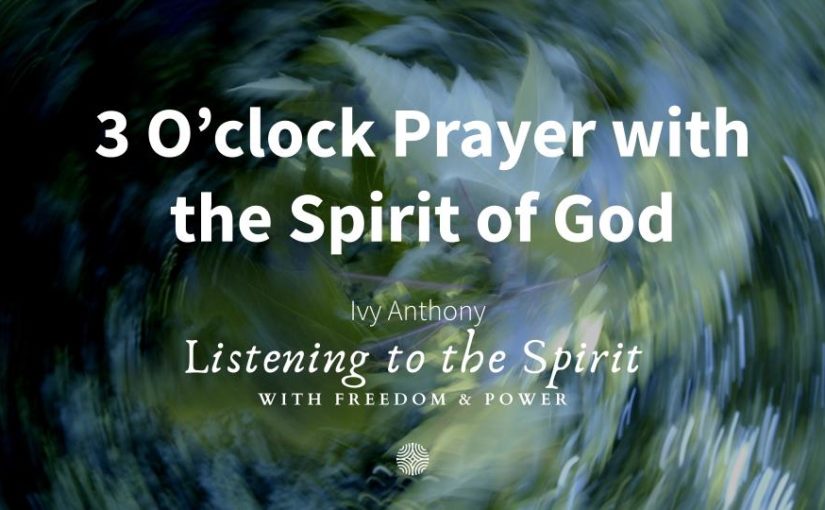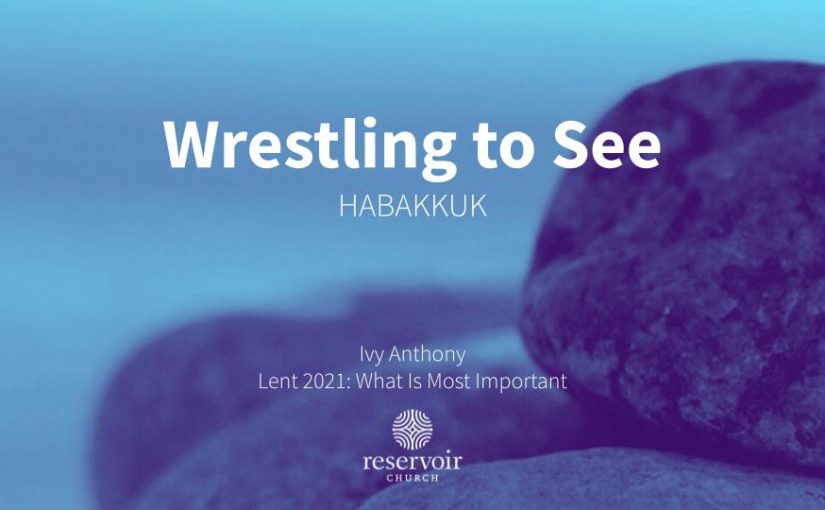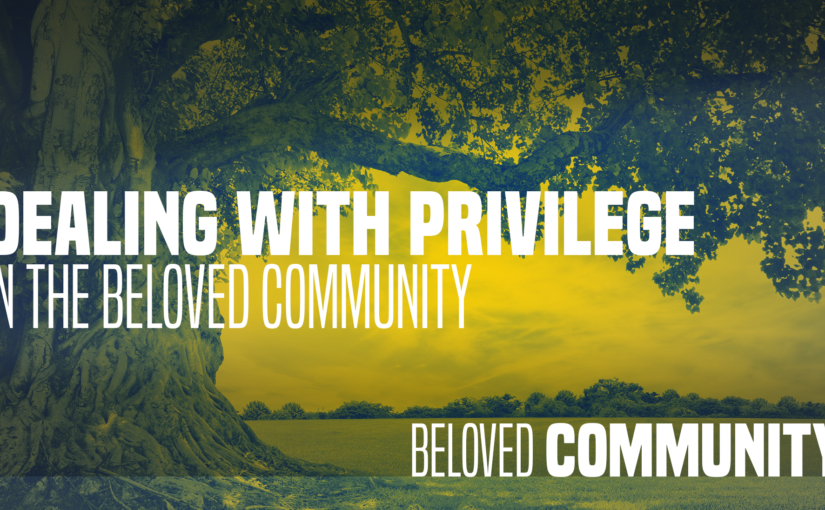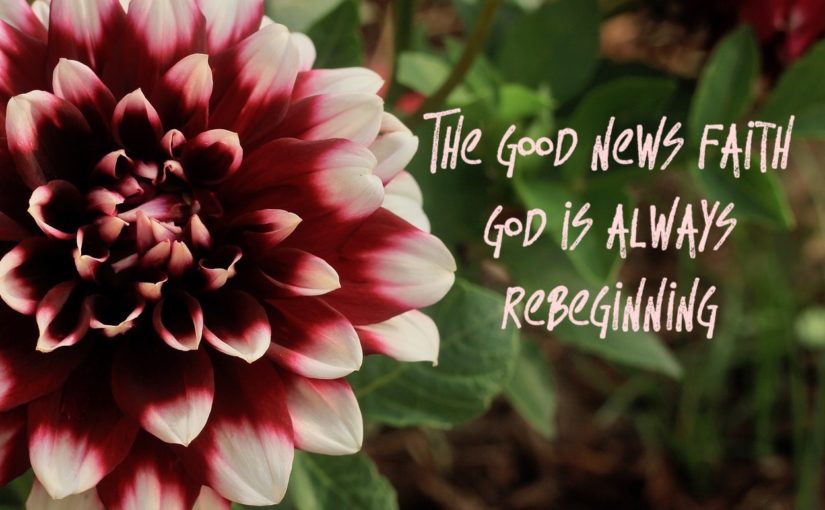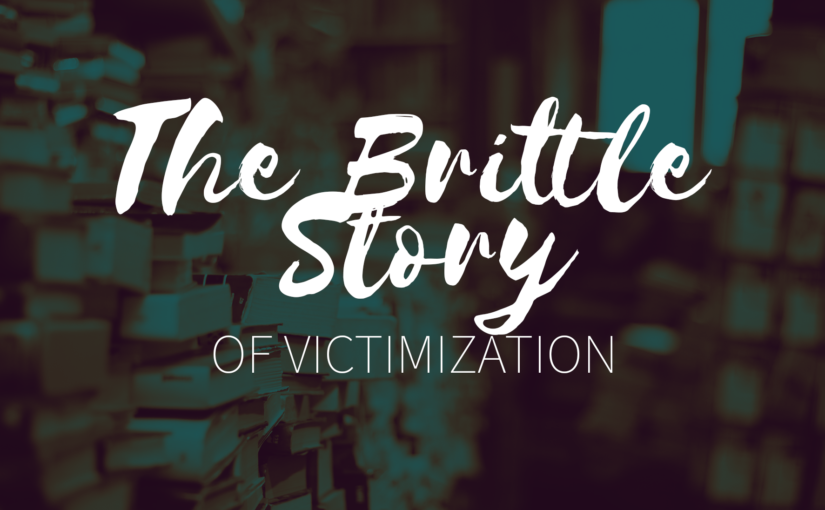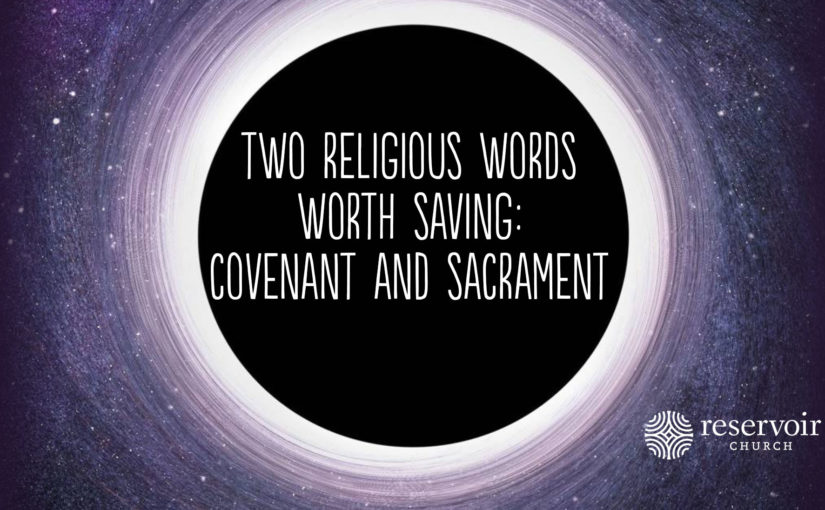I’d like to read our scripture first today. It’s a very short excerpt from Isaiah 43 that will launch us into today’s teaching, which focuses on the themes of this whole larger section of Isaiah.
Isaiah 43:18-19 (New Revised Standard Version)
18 Do not remember the former things,
or consider the things of old.
19 I am about to do a new thing;
now it springs forth, do you not perceive it?
I will make a way in the wilderness
and rivers in the desert.
Today’s talk is called “Love is a semicolon.” I love semicolons so much I recently got one tattooed on my wrist. It’s right here. Today’s my shot to tell you why I did that, for me but for maybe for all of us too.
I love semicolons for nerdy, English teacher reasons. The semicolon is one of the less common punctuation marks – looks like a period above a comma. For different reasons, they’re fun and useful to teach about. You can teach a lot of grammar and usage in the English language by talking about semicolons.
They’re interesting to use too. The most common use of a semicolon is when you’ve got a sentence and you want to slap another sentence onto it without separating them and without adding any of those little connecting words like “and”, “so,” or “but.” And when you do that, the second part of the sentence, that part after the semicolon, really matters.
A semicolon indicates there is more to say. The thought isn’t over.
This is why the semicolon has become significant as a symbol amongst those who have faced or care about depression, suicide, addiction, or self-harm. The semicolon says that the past doesn’t tell our whole story. There’s always a future story yet to be told.
The semicolon dares to hope about this future that the best is always yet to come.
I believe this is true, always, which is why love is a semicolon.
The scripture I read to you is from the portion of Isaiah – chapters 40-55 – written to the Judean exiles living in Babylon. They were among the many ancient peoples who had seemed to face their end. I remember many years ago when Grace and I were in Xinjiang, far Northwest China, a Uyghur friend discreetly said to me, Look around. They are destroying our culture. In the future, will we even exist?
This was the fear of the Judean exiles. Like so many refugees today, they would have faced deaths in their families, other wartime traumas. They lived in a land where they mostly couldn’t speak the language, where they faced insults and discrimination on the regular, and where there was no route back to the better days of their past.
This Babylonian exile looked like an end to these Judeans.
I haven’t faced war or exile in my life, but I’ve had times where I faced sad endings, smaller ones, but ones that mattered to me. One of those was about 19 years ago this month. I had a newborn child, and I had hit another professional dead end, and I was really scared.
See, when I was younger, I’d been in the classical music scene, and it’s a pretty niche field, but I had a lot of success early. Then, being young and naive and impressionable, I dumped all that to be a young college campus minister. I was underqualified, I was underpaid, and frankly, I kind of underperformed too. I had tried doing Christian ministry to college students because at the time it seemed like something that would make God proud of me or happy about my life or something.
But like I said, I wasn’t great at the work, and it was having a negative effect on my happiness, on my finances and my future, even on my marriage. So I quit, and after a long and awkward bit of spinning my wheels, working odd jobs, dropping out of a graduate school program, I eventually found a job as a public school teacher. And almost two years into that, I thought I had found not just a job, but a career, something I was good at, something I enjoyed, something that really helped other people, and something that over time would help support the family we were having, with this first baby child of ours.
And then I was laid off.
I wondered if I’d get my job back, or if this was yet another dead end.
I wondered if I’d be able to support my baby daughter and my wife who was trying to finish her graduate degree as a new mom.
And I was haunted by a fear that had deep roots in me, going back to childhood, that my life – as much potential as it once seemed to have – would end up being a failure.
A lot of us have been facing what look like dead ends. In my circles, I know people who have faced the death of a loved one and can’t get through the grief. I know kids and their parents whose anxieties and depression and struggles are just relentless and not getting better. I know families that are torn apart over politics, over unhealed conflicts, over unaccountable, bad behavior. I know people whose marriages seem to have entirely run out of joy and intimacy.
And I know people whose faith in God is hanging by a thread, mostly gone.
I know you know these stories too. I know that some of you are living these stories. To all of us at what looks like the end of a sad story, what does God have to say to us?
I look to this section of Isaiah not just because of the story of the exiles it addresses, but because for Chrisitans, Isaiah has been so important that it has sometimes been called the great prophet, or the fifth gospel. Another source of good news. Its poetry about God’s heart for Judeans in the ancient Near East seems to echo down through history with truth about God’s ways in all times and places.
So what does God have to say to us in our dead ends?
Well, Isaiah tells us:
Thus says the Lord,
your Redeemer, the Holy One of Israel:
I am the Lord, your Holy One,
the Creator of Israel, your King.
Thus says the Lord,
who makes a way in the sea,
a path in the mighty waters,
And then the bit we read at the start:
Do not remember the former things,
or consider the things of old.
19 I am about to do a new thing;
Two things here.
God tells us that we can not go back to the past. The good and the bad – all of it – it’s gone, over. We can’t go back.
For me in my crisis 19 years ago, that meant I couldn’t remake the choices of my early and mid-20s. I couldn’t reach back and grab opportunities I’d passed on. They were gone. I couldn’t rewind my life to a time without financial responsibilities. I certainly couldn’t rewire my family’s story or the story of what was off base in my early years of faith in Jesus, and some of the other things that had set me up for this failure or fear of failure. I carried that with me.
The same with all our dead ends and blocks – we can’t go backwards.
We can’t go just “back to normal” after two years of pandemic fear and caution. We’re different now.
We can’t go back to the naive faith of our childhood if we’ve lost that. That particular form of faith we lost for a reason.
We can’t go backwards on anything.
So whether it’s a warm nostalgia for the past, like we see in the whole Make America Great Again movement, or whether it’s a painful fixation on the past, like those of us who live with ruminating regret, trying to recover or fix or return to the past is never going to work. It’s not going to have power to help us move forward.
What God does tell us, though, is that there is always a hopeful future.
God says,
“I am about to do a new thing… a way in the wilderness, rivers in the desert.”
Everytime we start to write that period, that ending into our story, God invites us to try a semicolon instead. There’s always a next chapter.
A new thing.
For me, this meant a new way of thinking about work and failure and my life mission. In my fears that I had somehow reached the end of my vocational and financial future at age 29, I was praying that spring and reading the prophets of exile as inspiration for prayer, and I felt like God was inviting me to think less about my job prospects and more about my identity, values, and aspirations in life.
As I called to mind who I was and what I cared about most deeply, I remember a particular morning when I went out very early to pray. I awoke in the dark and rode to the ocean to pray at sunrise because I needed hope and vision and had a sense that God would find me with it there. And that sunrise along the ocean, it came to mind with great clarity, like a promise from God:
Steve, you know who you are. Your values, your best desires are clear, and your calling is just to pursue these things no matter what job you’re in. The job doesn’t matter. You are who you are, not what you do. And no matter what happens, no matter what you gain or lose, you will never be a failure. You are not a failure to me, and you never will be.
Friends, I can’t tell you how freeing that vision of my future was. That I am who I am, not what I do. It was time to let go of worrying so much about what job I had and how secure it was. It was time to fully be who God made me to be within any job I had or could find, and beyond jobs entirely too, and the rest would take care of itself.
This was so freeing and empowering for me, a different way of embracing a very hopeful future.
For Israel too, their return from exile would be different. They weren’t getting their same temple back, their same set of lands, their same way of being in the world. History had moved on from all that.
But they were getting a hopeful future. Their return from exile under Persian rule allowed them to resettle in and around the land between the Mediterranean and the Jordan River, even while others lived in a diaspora that would continue spreading in the centuries to come. In this new future, things like the written word – what became the Jewish Bible, what Chrisitans call the Old Testament – would take on greater meaning.
Charismatic prophets would slowly take on a less central role in speaking for God, and people’s own lives of prayer would become more important. Israel’s faith that God always does good to the faithful and always does bad to the unfaithful would change and grow – take on more realism, more nuance – less about God’s punishment and rewards, more about God’s presence in all things. Their lives and faith would be less about their own tribe and people and more about their life among the nations, and their call to be blessed to be a blessing to the whole world.
This section of Isaiah and what comes beyond is gorgeous poetry because it is so full of vision and hope for what people who are loved by God and know God can be. And it starts with faith that God is always about to do a new thing, that just now, it is springing forth. Look for it. Perceive it.
I don’t know what it is, but I am confident that in whatever stalled places and dead end places you find in your lives, there too God is doing new things. There is invitation to make some peace with the unchangeable past, perhaps even to grieve and let go and move on. And there is invitation to pay attention to the new possibilities that are available.
Ask God. Search your hearts. Literally or metaphorically, pray by the ocean at sunrise, asking God to discern the hopeful future before us all.
It is there for you, and for the people you love. I promise you.
The follower of Jesus has the audacity to believe this even in the face of death, that with a God who knows and loves us, and with a God of creative redemption, the best is always yet to come.
Let’s close with just a couple more words about the pivot God makes with us, the shift God encourages us to make when we turn from the irretrievable past to God’s hopeful future. When we erase that period of finality and doom we feel and embrace how love is a semicolon.
There are two things here – one maybe surprising and one review.
The surprising one is this.
To embrace God’s new and beautiful thing, the word of God in Isaiah commands us to renounce idols.
That took a strangely ancient, religious turn, didn’t it?
Renounce idols. What does that even mean?
Idols are anything other than the living God that we cling to in our insecurity to tell us who we are or make us feel 100% safe and secure. They can be secular or religious, ancient or modern. But we’re asking them to do things they can not do for us.
So to renounce idols is just to do what Isaiah does again and again. It’s to tell the truth about them. That we can’t trust them to take care of us, and we can’t trust them to love us and make meaning of our lives like God can.
A couple examples:
Where God met me in my despair over my future 19 years ago, renouncing idols was saying that I am no longer what I do. I am who I am. My job title, pay, security, or success is not the measure of my meaning and worth. It’s not how I measure whether I’m a failure or not. And it’s not what ensures a good future for me. I am who I am – beloved child of God, made for love and purpose that goes beyond the particulars of any job.
That’s the renunciation of an idol and an embrace of God.
When people say: you’re work won’t love you back, this is what they’re saying. Not that you can’t love your job or work hard, but that your job can’t define you or tell you your meaning or worth. That’s idolatry.
When it comes to my despair over my children’s struggles, I’ve sometimes been confronted by God to let go of the idolatry of the so-called perfect child. Whatever my dream or vision is of a “perfect child” or whatever lies my culture or community have told me about all a kid needs to be to be happy and successful, I need to let that go in my heart and trust that God loves my kids.
God loves all kids, and God can give them a safe and happy future the same way God does with me – not by everything being successful and easy, but by always doing a new thing, and by charting paths or beauty and redemption even after and through every weakness and struggle.
This is true of faith deconstruction too. If your faith has changed, even if it has seemingly weakened, sometimes we’re called to renounce idols associated with our earlier, more certain faith. Maybe we need to let go of always thinking we’re right. Maybe we need to let go of thinking we can know all the answers. Maybe we need to let go of thinking we’re better than our friends or neighbors or enemies that do not follow Jesus. Sometimes letting go of things that aren’t ours to have helps open up what God can give us.
What dream, what fantasy I might say, do you embrace of what will make you secure, what will tell you that you are safe and loved, that isn’t real, and that isn’t God? It might be time to let that go. To say to yourself:
I know this isn’t true. I want God to tell me I’m loved and safe. I want to build my future on what’s true.
And then secondly, the review. To see and say yes to the new thing God is doing, we are called to embrace a novel future, to look for and wholeheartedly go after the best creative possibility that is available to us today, given where we’ve been, who we are, and what our circumstances are.
God is always speaking hope to us, not vague sentiments of hope, but concrete, hopeful possibilities. Some might argue that this is the primary way God speaks – always luring us, always inviting us to the next best possibilities for ourselves, for our communities, for this earth, even for God.
Embracing curiosity and attention for what those are, year by year, day by day, moment by moment is the life of hope and faith God has for us.
Friends, as we wrap up and pray, let me say that I am really excited for the spring season of Lent we have before us this year. This year’s Lent, the six weeks before Easter, is called Water of Life. It’ll be all about the vitality, the refreshment and rejuvenation, the healing and abundance, the life that God has for us all.
It begins in three weeks. Guide for personal and community group use will be available in about two weeks. It’s an invitation to vitality, to faith, to hope, to the water of life God has for it all. Pray for what God has for us in that season, and please plan on participating. More on that in the weeks to come.
Friends, God’s best is yet to come.
God says to us to today:
Do not remember the former things,
or consider the things of old.
19 I am about to do a new thing;
now it springs forth, do you not perceive it?
I will make a way in the wilderness
and rivers in the desert.
Let’s pray.



